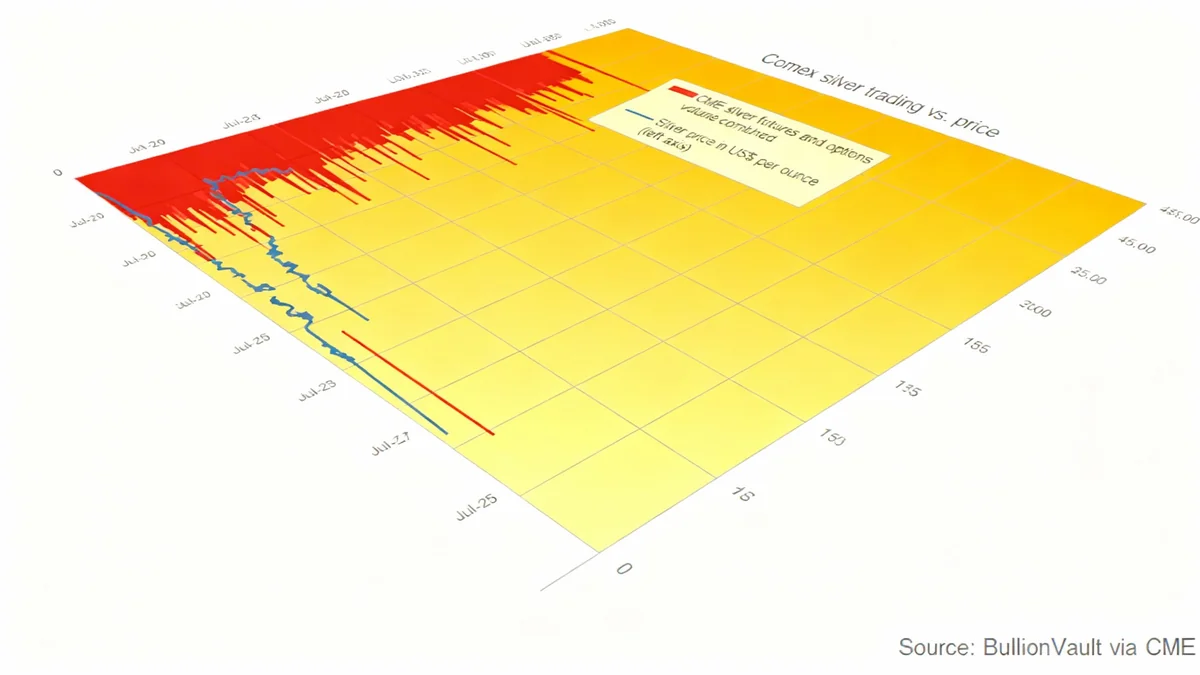A massive influx of venture capital is being concentrated into a handful of elite artificial intelligence companies, leading to soaring valuations and prompting growing concerns among investors about a potential market bubble. New data reveals a significant distortion in private markets, where a small number of AI giants are absorbing a disproportionate share of funding while the broader startup ecosystem faces a capital drought.
Key Takeaways
- Over 40% of all U.S. venture capital funding in 2025 has gone to just ten companies.
- Top AI firms like OpenAI and Anthropic have raised more than $100 billion, with valuations tripling in months.
- While AI funding hits record highs, early-stage investment rounds for other startups are declining.
- Venture capital firms in Europe and the U.S. are facing their most challenging fundraising environment in years.
- A lack of company exits, such as IPOs, is trapping capital and increasing pressure on a small number of firms to deliver massive returns.
Investment Focus Narrows to a Few AI Giants
The venture capital landscape is experiencing a dramatic shift, with an unprecedented amount of money flowing into a very small group of artificial intelligence leaders. According to a recent report from financial data company PitchBook, the private market is mirroring Wall Street's concentration, where a few tech stocks have driven major index gains.
This trend is starkly illustrated by U.S. investment figures for 2025. More than 40% of all venture capital deployed this year has been allocated to just ten companies. This intense focus has created a class of AI mega-companies that operate on a scale far beyond typical startups.
Firms such as OpenAI, Anthropic, and Databricks have collectively absorbed over $100 billion in investment. The sheer size and speed of these funding rounds are reshaping the industry, leaving less capital available for a wider range of emerging businesses.
A Two-Tier Market Emerges
The current environment has created a clear divide. At the top, a select group of AI companies enjoys access to vast pools of capital and rapidly increasing valuations. Below this tier, thousands of other early-stage startups across various sectors are struggling to secure funding as investors chase the AI trend.
Valuations Skyrocket Amid Investment Frenzy
The intense competition to back leading AI firms has pushed their valuations to extraordinary levels in remarkably short periods. This rapid appreciation is a key factor fueling bubble speculation.
For instance, Anthropic completed a Series F funding round last month that valued the company at $183 billion. This figure is nearly three times its valuation from just six months earlier. In another example, Databricks secured $1 billion in funding in September at a $100 billion valuation, representing a 61% increase from its previous round in December 2024.
Unprecedented Speed of Investment
According to one British investor, the pace of deal-making in the AI sector is extraordinary. Meetings held on a Monday can reportedly lead to a closed funding round just two weeks later, a timeline that is highly unusual in the typically lengthy due diligence process of venture capital.
While these mega-rounds dominate headlines, the data shows a worrying trend for the broader tech ecosystem. The number of early-stage funding rounds is actively falling. This suggests that while overall investment in AI companies hit an all-time high in the first nine months of 2025, the foundation of the startup pipeline may be weakening.
Despite this, some regions continue to attract capital. Data from HSBC and Dealroom showed that UK startups raised $9 billion in the third quarter of 2025, marking the second-strongest third quarter on record.
Venture Capital Firms Face Fundraising Drought
A significant paradox has emerged in the market: while AI companies are raising record sums, the venture capital firms that fund them are facing their own difficulties. In the United States, the total amount raised by venture capitalists is on track for its lowest level since 2017.
This "fundraising drought" is even more severe in Europe, where the amount of capital flowing into VC funds has dropped to its lowest point in a decade. The UK, which accounts for approximately half of all European VC fundraising, is also experiencing weakness.
Challenges in the UK and European Markets
According to PitchBook, UK venture fundraising stands at around £7 billion so far this year, a decrease of nearly 40% from 2024 levels. This decline is attributed to several factors that are creating a difficult cycle for investors.
- Lack of Cash Distribution: A primary issue is the lack of returns being paid back to limited partners (LPs), the institutions and individuals who provide capital to VC funds.
- Muted Exit Market: With few companies going public through IPOs or being acquired, money remains locked within private companies. This prevents VCs from realizing gains and returning cash to their LPs.
- Investor Discouragement: Without seeing returns, LPs are more hesitant to reinvest in new funds, prolonging the fundraising process for fund managers.
Immense Pressure for Exceptional Returns
The combination of sky-high valuations, concentrated capital, and a sluggish exit market creates a high-pressure environment. The bar for what these heavily-funded AI companies must deliver to satisfy their investors is continuously rising.
"As company valuations soar, so does the pressure on them to produce exceptional returns, pushing the bar ever higher for what these businesses must deliver to satisfy their investors."
This dynamic has led to a palpable sense of anxiety within the tech and investment communities. The current market structure, characterized by illiquid assets and capital hoarded by a select few, appears increasingly unstable. Investors are on edge, waiting to see if the immense promise of AI will translate into sustainable, real-world value or if the market is heading for a significant correction.





